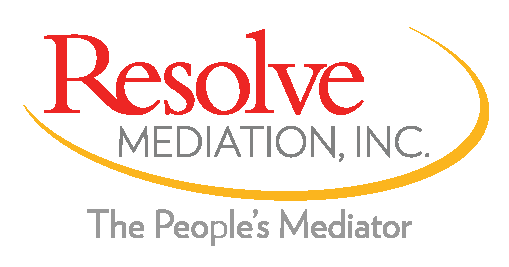Oftentimes when someone mentions mediation, divorce instantly comes to mind, not how it applies to your HOA.
Some states have adopted mediation as the “go to” standard in HOA disputes prior to entering litigation. The State of Florida Homeowners Association Act requires presuit mediation before litigation.i Colorado’s Judicial Department Office of Dispute Resolution promotes HOA mediation, guiding parties through the system and promoting the benefits of mediation.ii These are just two examples of states that use mediation in HOA disputes.
What is Mediation?
Mediation is an informal, confidential process where a neutral third party, the Mediator, assists in facilitating negotiations between disputing parties. A good mediator will know the elements of each case, applicable law and not rush to settle. Participants in mediation must have full authority and are empowered by exercising self-determination.
The mediator guides the mediation conference by explaining the rules to the parties who appear with or without legal counsel by their side. Mediation commences with opening statements when each side presents their issue(s) and what they are looking for in settlement.
Some mediators like to separate the parties following opening statements. This is referred to as “caucus.” The decision to caucus may vary dependent upon the circumstances. Some reasons to caucus may be to privately discuss strategy; venting ones feelings without offending the other side; or because the disputing parties just can’t be in the same room together.
Depending on the type of mediation the process can take a few short hours or may occur over the course of a day or two. At the conclusion of mediation you’ve either reached a settlement, partial agreement, impasse or no agreement. Mediation can be entered into voluntarily or may be court ordered. Sometimes an attorney will use mediation for discovery in a case, but not always.
5 Answers to FAQ’s: Mediation vs. Litigation
- Quicker Process: Much quicker than going to trial which can take weeks or months to prepare for, prior to your case being heard. Once your case is scheduled for trial you have no idea how long it will take to resolve.
- More affordable: When you use a mediator, you avoid the fees that accompany going to trial, which include a variety of administrative fees, attorney fees, filing fees and court costs, just to name a few.
- Confidential: Mediation is completely confidential. If you do go to court the mediator cannot disclose any mediation communications unless otherwise required or permitted by law or agreed upon by the parties.
- Less adversarial: The parties are coming together to negotiate and resolve their conflict. Even though the parties are in dispute, both are seeking settlement and are willing to open the lines of communication.
- Neutral third party — Alternative Dispute Resolution: A mediator is a neutral whose role is to participate with an open mind without pre-conceived ideas as to the outcome and will not make judgement. The mediator’s responsibility is to listen to both sides and help the parties understand the others position, facilitate the negotiation. The mediator guides the process and does not make the final decision as an arbitrator or Judge would. The parties are empowered to reach the final outcome.
Mediation in Your HOA
So, how does mediation work in your HOA? Let me count the ways… but here are just a few:
- Your neighbor’s dog just won’t stop barking when you’re trying to get some sleep and you’ve kindly asked your neighbor, on many occasions, to temper their dog, to no avail.
- Per your CC&R’s you’ve requested minutes from your Association Board meetings and your Board is dragging their heels on producing them.
- A worker from the landscaping company for the common elements fell off a ladder and wants to sue the Association for medical expenses and damages.
Think First
Before anyone shoots off a nasty letter to their neighbor who has retained an attorney threatening to sue you, consider mediation. Whether required by your State’s law, voluntary, or court ordered, mediation is a less adversarial, affordable and quicker alternative to litigation and resolving your dispute. Mediation can also be the one step ahead of settling an issue with your neighbor, the person you drive by every day to and from your home, before things turn ugly.
Mediation is an option to saving your neighborly relationship.


